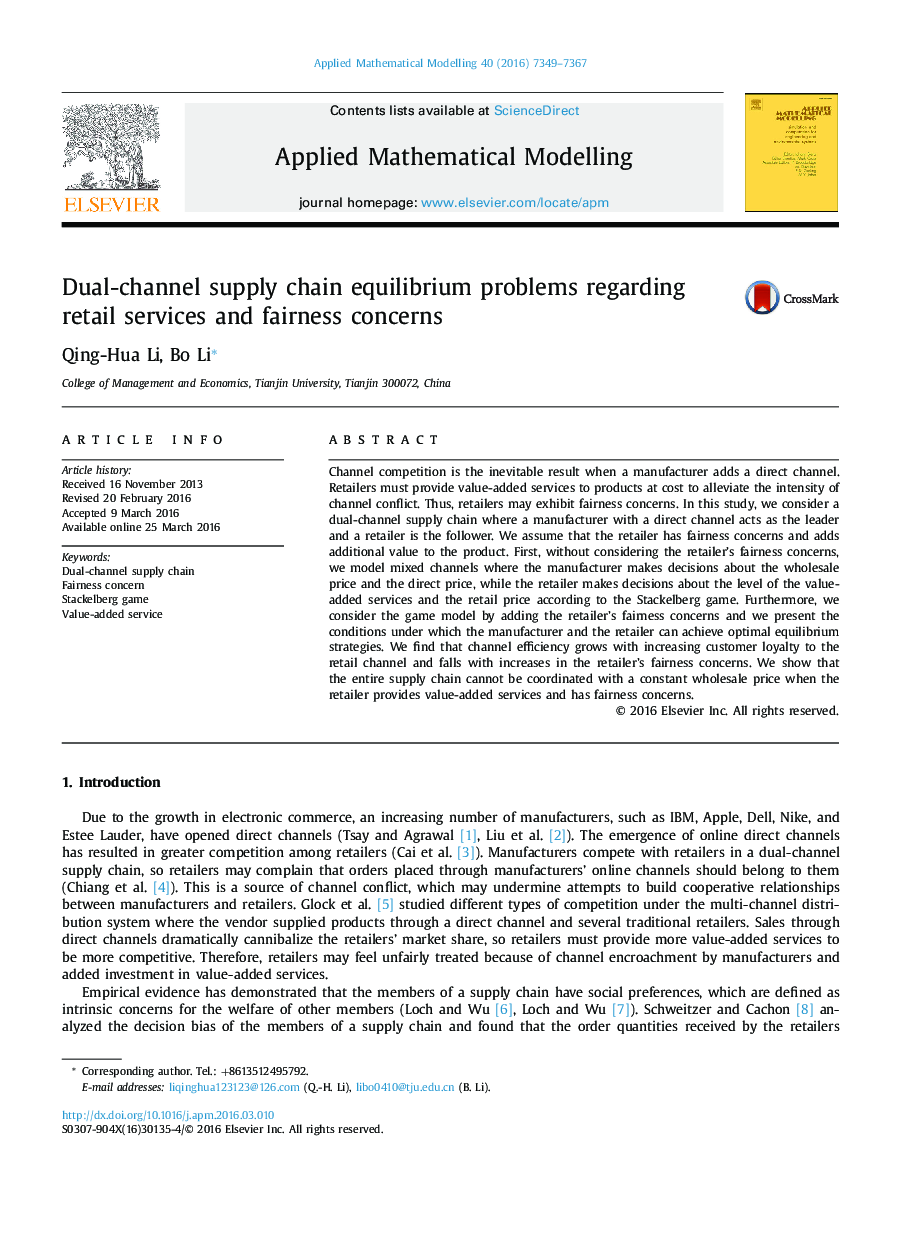| Article ID | Journal | Published Year | Pages | File Type |
|---|---|---|---|---|
| 1702834 | Applied Mathematical Modelling | 2016 | 19 Pages |
•This paper analyzes the impacts of value-added service provided by the retailer.•The impacts of the retailer's fairness concerns on pricing strategies are studied.•We conclude that the wholesale price cannot coordinate dual channel supply chains.•We consider the channel efficiency when the retailer has fairness concerns.
Channel competition is the inevitable result when a manufacturer adds a direct channel. Retailers must provide value-added services to products at cost to alleviate the intensity of channel conflict. Thus, retailers may exhibit fairness concerns. In this study, we consider a dual-channel supply chain where a manufacturer with a direct channel acts as the leader and a retailer is the follower. We assume that the retailer has fairness concerns and adds additional value to the product. First, without considering the retailer's fairness concerns, we model mixed channels where the manufacturer makes decisions about the wholesale price and the direct price, while the retailer makes decisions about the level of the value-added services and the retail price according to the Stackelberg game. Furthermore, we consider the game model by adding the retailer's fairness concerns and we present the conditions under which the manufacturer and the retailer can achieve optimal equilibrium strategies. We find that channel efficiency grows with increasing customer loyalty to the retail channel and falls with increases in the retailer's fairness concerns. We show that the entire supply chain cannot be coordinated with a constant wholesale price when the retailer provides value-added services and has fairness concerns.
